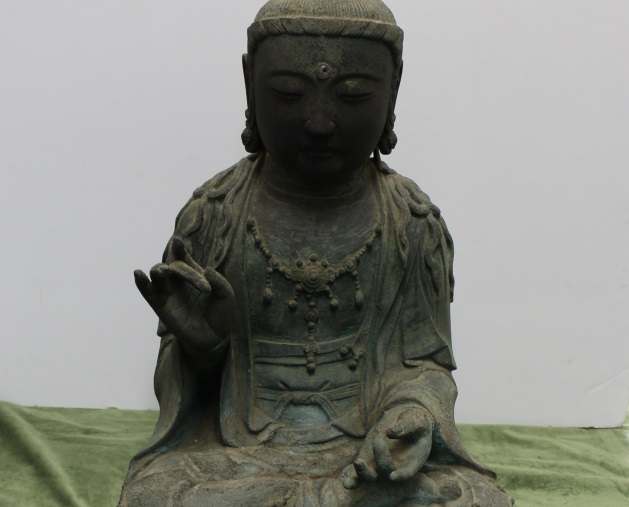South Korea’s Supreme Court orders the return of disputed statue to Japan
A ruling by South Korea's highest court settles the case involving a sacred image claimed by a temple in Seosan, which says it was stolen by Japanese pirates centuries ago. The court ruled that it must be returned. The dispute feeds into the stormy relationship between the two countries, despite recent attempts at political rapprochement.
Seoul (AsiaNews) – South Korea's Supreme Court has ruled against a local Buddhist temple that claims ownership of a statue that it says was looted by Japanese pirates at the end of the Goryeo era.
The court decided that the statue, stolen from a Japanese temple by a group of South Korean thieves in 2012, rightfully belongs to Japan's Kannonji temple, based on the legal principle of "acquisitive prescription".
The decision is important given the historical rivalry between the two countries, who have been working on rapprochement in response to a perceived threat posed by Chinese expansionism.
The statue’s ownership comes under Japanese civil law, according to which a person or entity can acquire ownership of an asset "even if it did not originally belong to them," as long as they possess it "peacefully and openly" for a minimum of 20 years.
Kannonji Temple officially registered itself as a legal entity in January 1953, showing continued possession of the statue since then.
The case broke out in October 2012, when a group of South Koreans stole the gilt bronze statue of a sitting Bodhisattva, from Kannonji Temple in Nagasaki Prefecture, along with another statue from Kaijin Shrine. The statue is 50.5 centimetres high and weighs 38.6 kilograms.
In early 2013, the thieves were arrested and prosecuted in South Korea where the government immediately seized the statue and placed it in the care of the country’s Cultural Heritage Administration, which is headquartered in Daejeon.
That same year, Buseoksa, a Buddhist temple in Seosan, southern Chungcheong province, filed a temporary injunction to stop its return to Japan.
In 2016, it filed a lawsuit against the South Korean government, claiming ownership of the statue, which it said had been looted by Japanese pirates.
The next year, the Daejeon District Court ruled in favour of Buseoksa, citing historical documents and evidence of Japan's looting of Buseoksa.
But in February of this year, the Daejeon High Court overturned the ruling, saying that the Kannonji Temple had acquired the statue's legal ownership through continued possession.
For its part, at the trial, Kannonji Temple said that it had acquired it through legitimate trade in 1527.
South Korea's foreign ministry said that it will abide by the top court's decision. "The return procedures will be decided by our relevant agency in accordance with related laws and regulations," a ministry spokesperson told a briefing.
12/02/2016 15:14
07/01/2017 12:38







.png)










